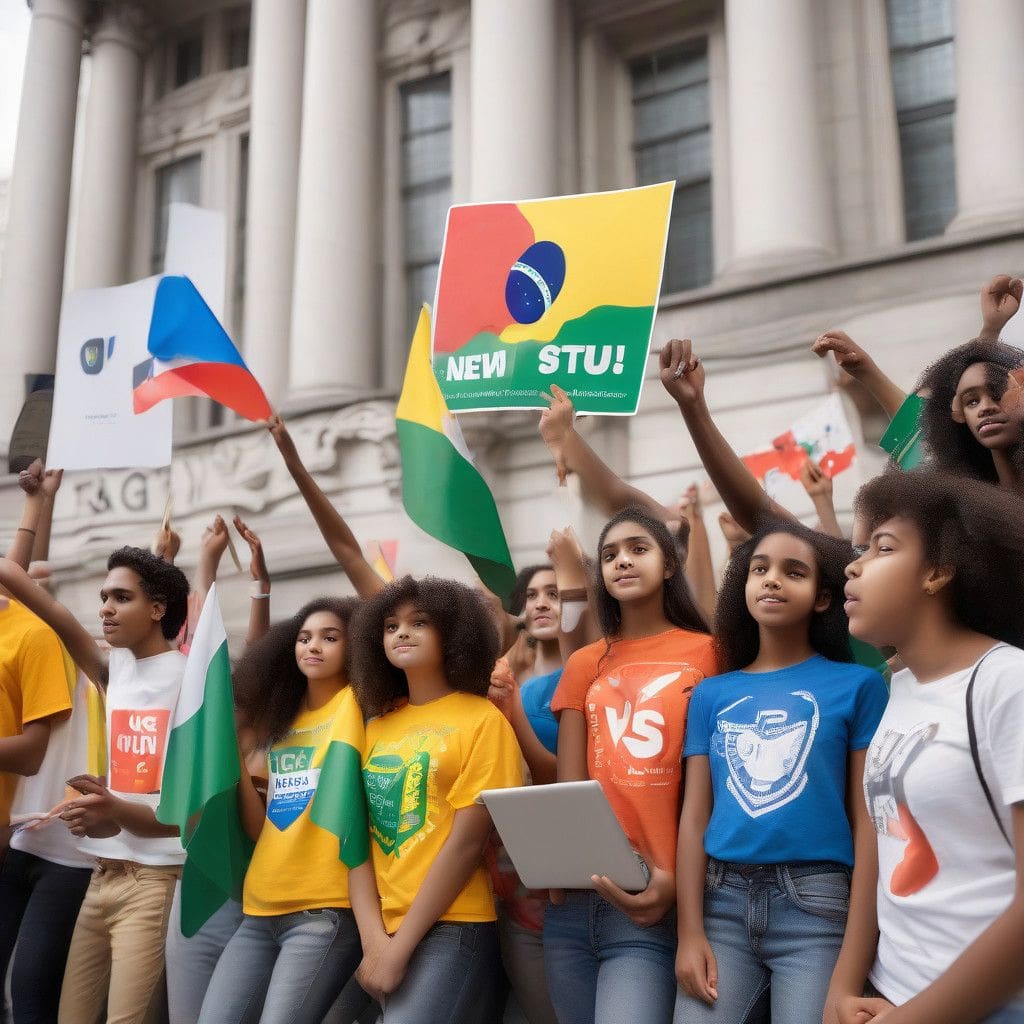In a significant move highlighting the burgeoning debate over social media regulation in Brazil, the country’s Collective Defense Institute has initiated two lawsuits against the Brazilian branches of Meta, TikTok, and Kwai. These legal actions seek a staggering 3 billion reais (approximately $525 million) in damages, accusing the platforms of failing to protect young users from the dangers associated with excessive social media use.
As digital platforms become an integral part of young people’s lives, the imperative for ensuring their safety cannot be overstated. The lawsuits stem from concerns that unregulated usage of these platforms contributes to deteriorating mental health among children and adolescents, a sentiment echoed by numerous studies on social media impact. According to a recent study published in JAMA Psychiatry, adolescents who spend more than three hours daily on social media face increased risks of mental health issues, such as anxiety and depression.
Attorney Lillian Salgado, representing the plaintiffs, articulated the urgent need for Brazil to adopt safety measures akin to those implemented in more developed nations. She underscored the necessity for modifications in algorithms, enhanced oversight of user accounts for minors, and more robust data management protocols for users under the age of 18. The proposed changes are not merely precautionary; they are essential steps toward the safeguarding of youth in the online landscape.
Meta, which owns social media giants Facebook and Instagram, responded by asserting its long-standing commitment to youth safety. The company claims to have developed over 50 protective tools aimed at safeguarding teenagers on its platforms. One notable initiative is the upcoming ‘Teen Account’ feature on Instagram, designed to limit what teenagers can see and who is allowed to contact them.
TikTok, while maintaining a stance of not having received formal notice regarding the lawsuit, has reiterated its commitment to user safety. The platform is known for its stringent guidelines aiming to create a safer environment for minors, indicating a proactive approach to addressing safety concerns. Similarly, Kwai emphasized that the safety of its users, particularly minors, remains a primary focus of its operations.
This legal initiative comes on the heels of a heated dispute between Elon Musk’s X platform and a Brazilian Supreme Court justice, which resulted in significant fines and has placed social media regulation in the limelight. The aftermath of that case prompted exacerbated scrutiny on how social media companies handle user data and ensure the mental health of younger patrons.
The Collective Defense Institute’s actions reflect broader societal concerns about the adverse effects of social media on children. Mental health experts have been vocal about the impact of online environments on youth behavior and well-being. For instance, the American Academy of Pediatrics has described excessive screen time as detrimental, advocating for limited and supervised use of digital devices among children. This aligns with the lawsuit’s call for stronger regulations to protect minors.
In Brazil, the need for comprehensive digital safety laws has been mirrored in public sentiment, with parents and guardians increasingly voicing their worries about the psychological effects of unrestricted social media access. The case against Meta, TikTok, and Kwai may serve as a catalyst for advancing legal frameworks governing social media’s role in the lives of youth.
As the legal proceedings unfold, the outcomes could have far-reaching implications not only for the accused platforms but also for social media governance globally. If successful, the lawsuit could pave the way for more stringent regulations that require platforms to take accountability for their role in shaping online experiences for young users.
From algorithm modifications to stricter data policies, Brazil’s Collective Defense Institute is advocating for a future where youth can navigate the digital realm safely and responsibly. The actions taken by these organizations send a clear message: protecting children in digital spaces is paramount, and significant changes are necessary to prevent harm in an increasingly online world.
As this case develops, stakeholders in digital policy and child safety will be watching closely, as its implications may resonate far beyond Brazil’s borders, potentially influencing global standards for social media regulation.












